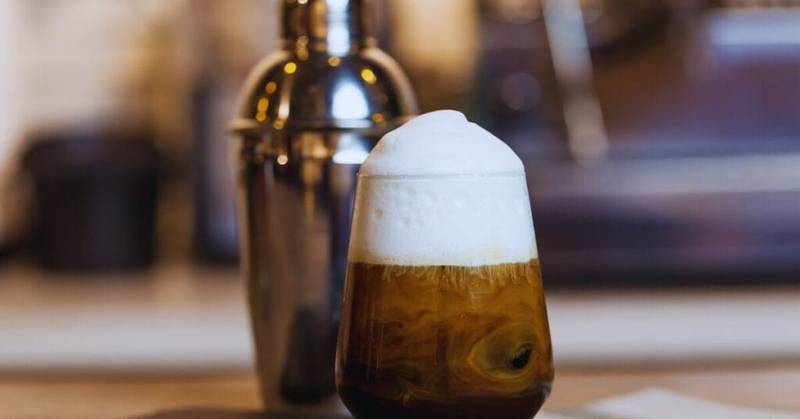Can instant coffee be made with cold water? This question has sparked curiosity among coffee enthusiasts and casual drinkers alike.
This query often arises as we delve into the world of brewing methods, especially amidst the surge in cold brew popularity.
While traditionally, hot water has been the go-to for dissolving those granules, the prospect of a chilled alternative raises decaffeinating doubts for many.
In this exploration, can instant coffee be made with cold water? We aim to uncover the truth behind this brewing technique.
With the rise of convenience and the demand for instant solutions, understanding the compatibility of instant coffee with cold water becomes crucial.
Additionally, for those seeking a caffeine-free alternative, the process of decaffeination may hold particular interest.
Join us on this journey as we navigate the realms of coffee brewing, addressing common misconceptions and shedding light on whether instant coffee can be made with cold water.
Let’s embark on a flavorful adventure that might just redefine your coffee rituals.
As an affiliate site, we are associated with the amazon. We might receive a commission when you use links or recommendations on our website to make qualified purchases. The cost you pay for the goods or services is unaffected by this.
Table of Contents
Can Instant Coffee Be Made With Cold Water || 10 Facts

In the world of coffee brewing, the question of whether instant coffee can be made with cold water has been a subject of much debate and experimentation.
While hot water has long been the conventional choice for dissolving instant coffee granules, the rise of cold brew and the desire for convenience have prompted many to explore this alternative method.
Let’s delve deeper into this topic to uncover the facts behind the process.
1. Solubility Factor
Instant coffee granules are designed to dissolve quickly and completely in water, regardless of their temperature. Hence, technically, yes, instant coffee can be made with cold water.
2. Time Consideration
While hot water facilitates faster dissolution, cold water requires a longer brewing time for the granules to fully dissolve. Patience is key when making instant coffee with cold water.
3. Flavor Profile
Brewing instant coffee with cold water can result in a milder and smoother flavor profile compared to hot water brewing. This method may appeal to those who prefer a less intense coffee taste.
4. Convenience
Making instant coffee with cold water offers unparalleled convenience, especially for those on the go or during hot weather when a refreshing iced coffee is desired.
5. Caffeine Content
Contrary to popular belief, brewing instant coffee with cold water does not significantly alter the caffeine content. The extraction process remains consistent regardless of water temperature.
6. Experimentation Opportunities
Brewing instant coffee with cold water opens up a world of experimentation with flavorings, such as adding syrups, milk, or spices, to create personalized cold coffee beverages.
7. Sustainability
Cold water brewing requires minimal energy consumption compared to heating water for hot brewing methods, making it a more environmentally friendly option.
8. Storage Flexibility
Instant coffee made with cold water can be stored in the refrigerator for later consumption, offering convenience and flexibility for busy lifestyles.
9. Health Benefits
Cold brew coffee, including instant coffee brewed with cold water, may contain higher levels of antioxidants compared to hot brewed coffee, contributing to potential health benefits.
10. Versatility
The versatility of brewing instant coffee with cold water extends beyond traditional beverages. It can be used as a base for coffee-flavored desserts, cocktails, and even savory recipes, showcasing its culinary potential.
In conclusion, while hot water remains the conventional choice for brewing instant coffee, cold water offers a viable alternative with its own set of benefits and unique flavor characteristics.
Experimentation is encouraged to find the perfect cold brew recipe that suits individual preferences.
So, the next time you’re craving a refreshing coffee fix, don’t hesitate to explore the realm of cold water brewing.
Can Instant Coffee Be Made With Cold Water || Pros and Cons

Can instant coffee be made with cold water? This question has sparked a divide among coffee enthusiasts, prompting exploration into the pros and cons of this alternative brewing method.
While traditionalists may stick to hot water for its quick dissolution, cold water brewing offers its own set of advantages and disadvantages worth considering.
Pros
1. Convenience
Brewing instant coffee with cold water offers unparalleled convenience, allowing for quick and easy preparation without the need for heating water.
2. Refreshing Flavor
Cold water brewing results in a milder and smoother flavor profile compared to hot water, making it an ideal choice for those who prefer a refreshing and less intense coffee taste.
3. Reduced Acidity
Cold water brewing tends to extract fewer acidic compounds from the coffee grounds, resulting in a smoother and less bitter taste, which may be gentler on the stomach for some individuals.
4. Versatility
Instant coffee made with cold water can be used as a base for various coffee beverages, including iced lattes, frappés, and coffee cocktails, allowing for creativity and experimentation in drink preparation.
5. Energy Efficiency
Cold water brewing requires minimal energy consumption compared to heating water for hot brewing methods, making it a more environmentally friendly option.
Cons
1. Longer Brewing Time
Brewing instant coffee with cold water requires a longer steeping time compared to hot water brewing, as the granules dissolve more slowly in cold water.
2. Dilution
Cold water brewing may result in a more diluted coffee flavor, especially if ice cubes are added to chill the beverage further, potentially affecting the overall taste and strength.
3. Limited Extraction
Cold water brewing may not extract as many flavor compounds from the coffee grounds compared to hot water brewing, resulting in a less complex and nuanced flavor profile.
4. Storage Challenges
Instant coffee made with cold water is best consumed fresh, as prolonged storage in the refrigerator can lead to flavor degradation and loss of aroma over time.
5. Caffeine Content
Cold water brewing may extract slightly less caffeine from the coffee grounds compared to hot water brewing, which could be a drawback for those seeking a stronger caffeine kick.
In conclusion, the decision to brew instant coffee with cold water comes down to personal preference and lifestyle factors.
While it offers convenience and a refreshing flavor profile, it also presents challenges such as longer brewing times and potential flavor dilution.
Ultimately, experimenting with different brewing methods can help individuals discover their preferred way to enjoy their favorite instant coffee beverage.
Comparing Cold Water vs. Hot Water Brewing

When it comes to brewing instant coffee, the choice between cold water and hot water can significantly impact the outcome.
Exploring the differences between cold water vs. hot water brewing is essential for coffee enthusiasts seeking the perfect cup.
Let’s delve into the intricacies of each method to understand which one reigns supreme in the realm of instant coffee.
1. Cold Water Brewing
Cold water brewing involves steeping instant coffee granules in chilled water for an extended period, typically several hours or overnight.
This method offers a few distinct advantages, including a smoother and less acidic flavor profile.
The slow extraction process of cold water results in a milder taste that is less bitter than its hot water counterpart.
Additionally, cold water brewing can be more energy-efficient and convenient, requiring minimal effort and no heating of water.
However, it does require patience due to the longer steeping time, and the flavor may be slightly diluted if ice cubes are added to chill the beverage further.
2. Hot Water Brewing
Hot water brewing, on the other hand, is the traditional method of preparing instant coffee by dissolving the granules in hot water.
This process is quick and efficient, with the coffee granules readily dissolving in the heated water.
Hot water brewing extracts a fuller range of flavors from the coffee grounds, resulting in a richer and more robust taste compared to cold water brewing.
However, the higher temperatures can also extract more acidic compounds, leading to a potentially more bitter or intense flavor profile.
Hot water brewing is ideal for those seeking a strong and immediate caffeine boost without the need for extended steeping times.
3. Comparison
When comparing cold water vs. hot water brewing for instant coffee, it ultimately comes down to personal preference and desired flavor profile.
Cold water brewing offers a smoother and more refreshing taste, making it an excellent choice for those who prefer a milder coffee experience or enjoy iced beverages.
It also provides convenience and energy efficiency, albeit with a longer brewing time. On the other hand, hot water brewing extracts a fuller range of flavors and offers a quicker preparation time, making it ideal for those who crave a more robust coffee flavor.
Experimenting with both methods can help determine which one best suits individual preferences and brewing needs.
Cold Brew Revolution || Embracing the Trend of Cold Water Instant Coffee

In the ever-evolving landscape of coffee culture, a revolution is brewing: the rise of cold water instant coffee.
As enthusiasts seek new ways to enjoy their favorite caffeinated beverage, the allure of cold brew instant coffee has captured the attention of many.
But can instant coffee be made with cold water, and what sets this method apart from traditional brewing techniques?
Let’s explore the intricacies of the cold brew revolution and how it’s reshaping the way we enjoy our daily dose of caffeine.
Cold brew instant coffee represents a fusion of two beloved trends in the coffee world: cold brewing and instant coffee.
Unlike traditional hot water brewing methods, cold brew instant coffee involves steeping coffee granules in cold water for an extended period, typically overnight.
This slow extraction process yields a smooth, mellow brew that’s low in acidity and bursting with flavor.
One of the key advantages of cold water instant coffee is its convenience. By eliminating the need for heat, cold brew instant coffee can be prepared quickly and easily, making it ideal for busy mornings or on-the-go lifestyles.
Additionally, the extended steeping time allows for a more thorough extraction of flavors from the coffee grounds, resulting in a nuanced and complex brew.
Another benefit of cold water instant coffee is its versatility. Once prepared, cold brew instant coffee can be enjoyed on its own over ice or used as a base for a variety of creative coffee beverages, such as iced lattes, frappés, or coffee cocktails.
Its smooth, mellow flavor profile also makes it an excellent choice for incorporating into desserts or savory recipes.
However, it’s essential to note that cold brew instant coffee may have a slightly different taste profile compared to its hot water counterparts.
The absence of heat can alter the chemical reactions that occur during the brewing process, resulting in a brew that’s smoother and less acidic.
While some may prefer this mellower flavor profile, others may find it lacks the boldness or intensity of hot brewed coffee.
In conclusion, the cold brew revolution represents a thrilling new chapter in the world of coffee, offering a convenient, flavorful alternative to traditional brewing methods.
While it may not replace hot brewed coffee for everyone, its unique characteristics and versatility make it a trend worth embracing for coffee lovers seeking something new and exciting.
So, the next time you’re craving a refreshing pick-me-up, why not give cold water instant coffee a try and join the revolution?
FAQs || Can Instant Coffee Be Made with Cold Water
Does instant coffee in cold water work?
Yes, instant coffee can dissolve and work in cold water, albeit with a longer brewing time compared to hot water.
What happens if you brew coffee with cold water?
Brewing coffee with cold water results in a smoother and less acidic flavor profile due to slower extraction of compounds from the coffee grounds.
Can you make instant coffee without boiling water?
Yes, you can make instant coffee with cold water instead of boiling water.
Can you make Starbucks instant coffee with cold water?
Yes, you can make Starbucks instant coffee with cold water for a refreshing cold brew.
Conclusion
In conclusion, the discussion surrounding Can Instant Coffee Be Made with Cold Water has unveiled a fascinating coffee conundrum, showcasing the dynamic nature of coffee culture.
While traditional hot water brewing methods remain popular, the emergence of cold brew instant coffee represents a refreshing alternative, offering convenience, versatility, and a smooth flavor profile.
Whether one opts for the quick dissolution of hot water or the gradual extraction of cold water, the choice ultimately boils down to personal preference and desired taste experience.
Embracing this coffee conundrum allows enthusiasts to explore new horizons and savor the diverse flavors that the world of coffee has to offer.







